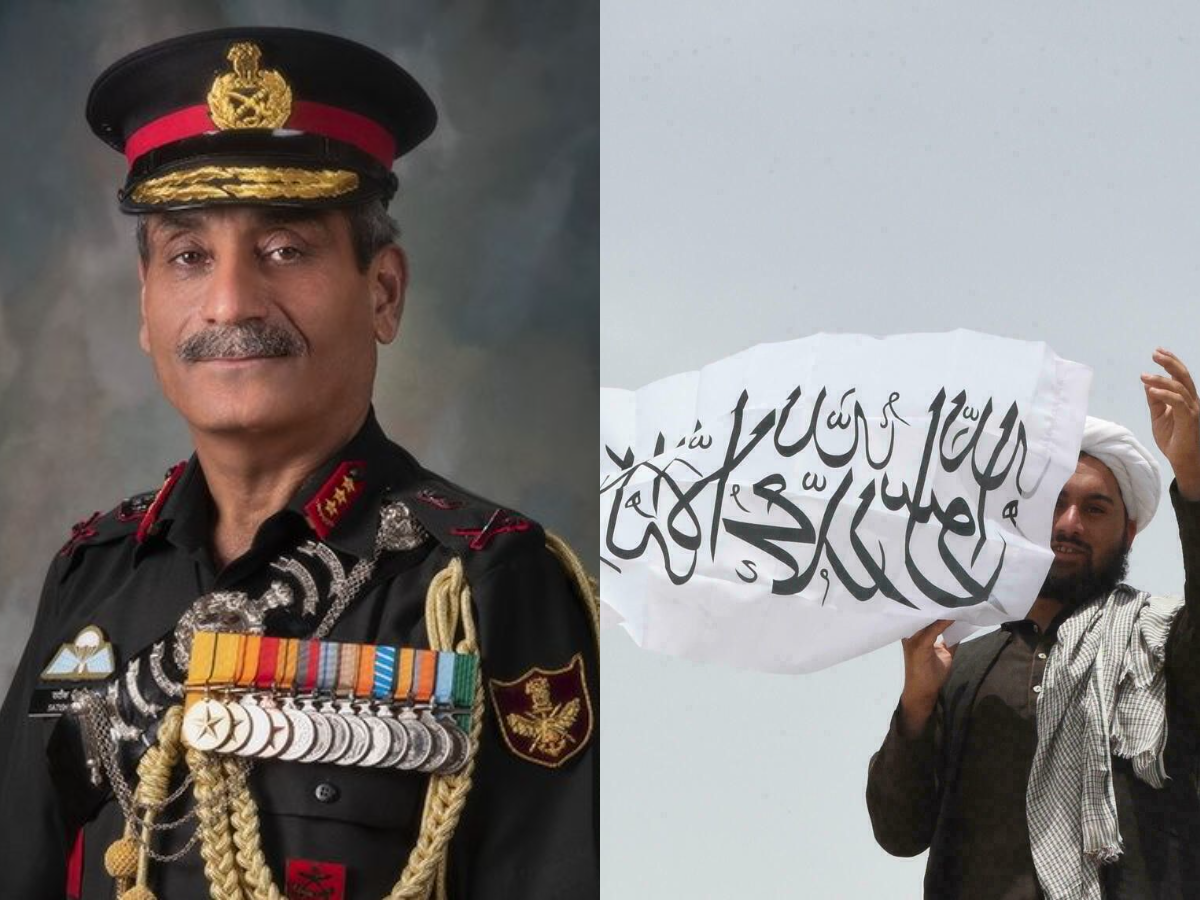Malik Sumeed
Srinagar 20 August (KNB): “Taliban’s conquering of Kabul after the US’s withdrawal from Afghanistan was not surprising; if anything was surprising, it was the speed by which it happened with all ending in three days was not hoped by anyone,” said Retd Lt General Satish Dua on Friday.
In an exclusive interview with Kashmir News Bureau, Retd Lt General Satish Dua, while replying to a question of Taliban’s swift control over Afghanistan and where America botched up in all this, he said, “As the U.S announced its decision to withdraw their troops from Afghanistan, the Taliban expedited their activities in return.Especially from the past few months, the Taliban dominated and later took control of some provinces and cities. It was not surprising that after American forces’ withdrawal from Afghanistan, the Taliban would be in control, but if anything was surprising, it was the speed by which it happened.”
General Dua said that the present Taliban, as per their statements, looks different from the one, which was there twenty years ago. “Whether there is any difference in their approach, it is yet to be seen,” said Dua, adding that some statements even are contradictory regarding the Taliban’s behaviour, and this is because no one has the exact information what is happening other than of some cities.
On questioning General Dua whether America’s hegemony has ended after the Afghan incident, he said that it would be an oversimplification to say that America’s hegemony has ended or not with this single event because there are other areas where the U.S has a stronghold and are more important than the recent event.
However, General Dua acknowledged that despite advanced equipment, prowess over modern technologies besides others, on the one hand, the fighters with small weapons defeated their opponent. “This is something from which we too can learn,” said Retd. Lt General Satish Dua.
Replying to whether India should recognise the likely coming Taliban government, he said that it would be premature to say anything at this stage as it is yet to be seen whether the Taliban would live up to their statements. General Dua also said that it needs to be seen, regardless of which government comes into power, how their domestic and international dealings would be, the rights of women, steps towards militant groups’ fostering, and other things.
With the Taliban’s takeover and its implications on India’s security establishment, General Dua said that “it is certainly a serious subject for India and we had seen things when current developments took place around two decades ago in Afghanistan with militants from there, after training, used to sneak into this side, and against whom we took part in operations while being in junior ranks. We have already experienced it, and this risk can develop again for us because it has been seen that there is coordination between ISI and Taliban including other militant groups like LeT, JeM etc.”
However, he further said that there is now a robust counter-infiltration grid in place than what it was in 1991-92 and said they (Army) have progressed in other things as well since then.
He also said that both militants in Pakistan and here are likely to get encouraged with the Taliban’s defeat of US troops. Therefore, in view of this, the intelligence agencies need to keep a strong vigil over things.
Regarding India-Pakistan relations, general Dua said that there has already been a deadlock between India and Pakistan after Article 370. The risk of militant organisations is bound to increase after the Taliban’s takeover, and that too with the involvement of ISI into all this. He said that if this happens, then the relationship between the two sides would further deteriorate.
General Dua also said that with the Taliban’s coming into power, Pakistan could face problems due to a Pashtun issue. He also noted that militancy issues would be witnessed in Pakistan, too, down the road.
Apart from the Taliban, while talking about Kashmir, said that after the abrogation of Article 370, the development had been seen on the ground level in the valley, and direct rule of the centre has helped in reaching the funds to every low rung leader after the conducting of DDC elections.
On questioning general Dua that there is peace and development in Kashmir, which the centre promised at Article 370’s revocation, he said that the encounters are taking place because of militant violence. No common person is facing a problem due to it. He said that circumstances during Burhan Wani’s time were different in the valley, but now the encounters are conducted to prevent further violence by the militants, hiding in villages.
He also said that there are no harmful impacts on the common public from political killings and encounters, but a change in people’s sentiments would take time. (KNB)

